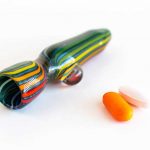Snorting Adderall can cause sinus infections, nosebleeds, a reduced sense of smell, and a higher risk of overdose and drug addiction.
Adderall is a prescription stimulant that is approved to treat attention deficit hyperactivity disorder (ADHD) and narcolepsy.
It is a popular target of drug abuse among young adults, particularly college students, as well as adults looking to increase productivity.
The widespread nature of Adderall abuse as a “study drug” can understate its potential dangers. Adderall should only be taken as directed, and your health may be at risk by abusing the drug.
Effects Of Snorting Adderall
Snorting Adderall can be a desirable form of Adderall abuse, due to the potential for increased concentration, energy, and activity. Adderall works by increasing norepinephrine and dopamine, two neurotransmitters associated with motivation and stress.
Snorting Adderall also strains the nasal passages and can lead to large amounts of Adderall entering the body.
This method of use can cause side effects such as:
- sinus infections
- nosebleeds
- reduced sense of smell
- dry mouth
- increased body temperature
- increased heart rate
- increased blood pressure
- damage to the nasal septum (wall between the two nasal passages)
These effects may be more severe if Adderall is snorted in high doses.
Prescription Adderall Vs. Adderall Abuse
Adderall is a prescription drug made of dextroamphetamine and amphetamine. These substances can improve concentration, listening skills, and organization, while reducing hyperactive tendencies such as impatience. These symptoms may be exhibited by ADHD patients.
Adderall and its extended-release version, Adderall XR, are available as pills or tablets. People looking to snort Adderall may crush these tablets into powder, and snort them with common household objects such as straws.
Adderall can improve concentration and energy for people without ADHD. This makes Adderall a popular “study drug” on college campuses or in the workplace. However, taking Adderall without a prescription is a form of substance abuse.
Dangers Of Snorting Adderall
Snorting Adderall can cause faster absorption, which can cause you to feel faster, stronger effects of Adderall compared to the oral route. However, higher effective doses of Adderall can be dangerous, especially when the drug is not taken as directed.
Adderall Overdose
Ingesting high amounts of Adderall can lead to an overdose. Snorting Adderall can cause effectively higher doses to enter the body, since absorption rates are higher compared to oral drug use.
During an Adderall overdose, the central nervous system may be unable to control vital functions.
Symptoms of an Adderall overdose may include:
- psychosis
- cardiac arrest
- heart attack
- heavy breathing
- stomach cramping
- convulsions
If you experience these symptoms or see them in a loved one, call for help immediately.
Adderall Addiction
Adderall can be habit-forming. Snorting Adderall for long periods of time can cause psychological dependence, or a strong mental need to continue taking the drug.
Physical dependence on Adderall may be unlikely, but health effects that resemble withdrawal symptoms may still occur if you quit Adderall abruptly. Adderall withdrawal can cause fatigue, depression, and insomnia.
Adderall can also cause drug addiction, a mental health condition where you are unable to stop taking substances despite a decline in health. In severe cases, Adderall addiction may resemble schizophrenia.
Signs of Adderall addiction may include:
- mood swings
- weight loss
- hyperactivity
- irritability
- psychosis
Treatment Options For Adderall Abuse
Adderall is a potent amphetamine with a high potential for abuse. It can be difficult to quit snorting Adderall without a proper treatment program, even though your health may be at risk.
A substance abuse treatment program may involve withdrawal management, behavioral therapy, referrals to support groups, and mental health counseling.
You may be recommended for an inpatient or outpatient program at a treatment facility, depending on how serious your condition is.
If you or a loved one need help accessing a substance use disorder treatment program, contact Northeast Addictions Treatment Center to learn about our outpatient options.
Sources
Written by
Northeast Addition Editorial Team
©2024 Northeast Addition Center | All Rights Reserved
This page does not provide medical advice.




